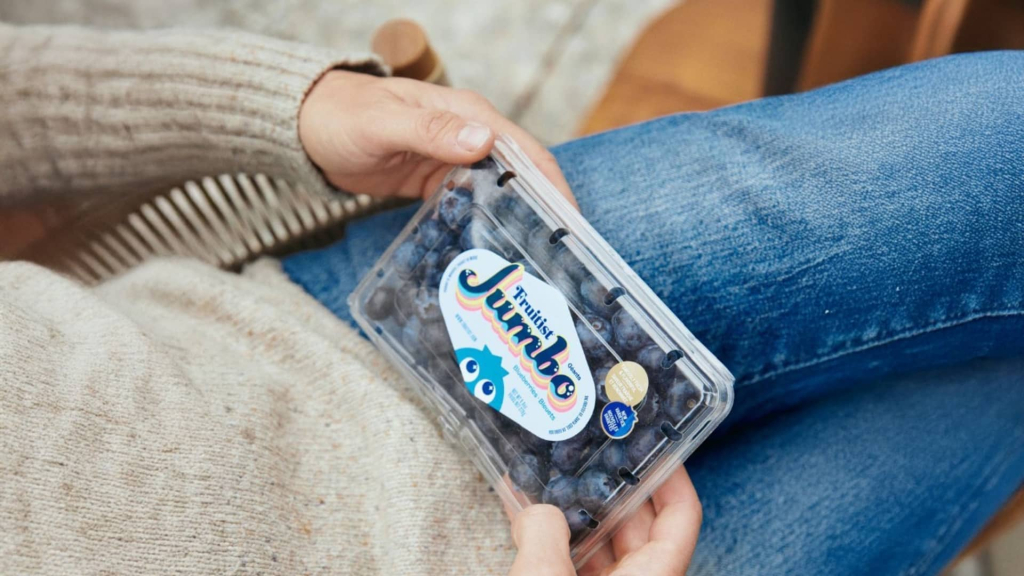Berry startup Fruitist has achieved over $400 million in annual sales, driven primarily by the popularity of its jumbo blueberries.
On Tuesday, the company announced a rebranding from Agrovision to Fruitist, a name it previously used exclusively for its consumer product line that also includes raspberries and blackberries.
According to Pitchbook data, as Fruitist’s berry sales have surged, the company has secured over $1 billion in funding from external investors. High-profile backers include Ray Dalio’s family office, founder of Bridgewater Associates.
The firm is considering an initial public offering this year, navigating a market affected by global trade tensions and concerns about a potential economic downturn.
Fruitist has differentiated itself in a competitive market by marketing its berries as “snackable.” This segment has experienced significant growth within the food industry lately.
Consumers are increasingly opting for healthier snacks over traditional options such as potato chips and pretzels, with major food brands expanding their offerings. The rise of GLP-1 drugs and the health initiative championed by Health Secretary Robert F. Kennedy Jr. have increased the appeal of healthier snacking alternatives to both consumers and investors.
Fruitist’s berries are available at more than 12,500 retailers across North America, including major chains like Costco, Walmart, and Whole Foods. Notably, the sales of its jumbo blueberries have increased threefold in the past year, fueling the company’s expansion.
Addressing ‘berry roulette’
Co-founder and CEO Steve Magami explained to Finance Newso that Fruitist was established to eliminate the issue of “berry roulette,” a term he uses to describe the inconsistent quality of berries found in grocery stores, which he attributes to the traditional model of produce distribution.
“The current system involves numerous small growers sending their produce to a packer, who then distributes it either to retailers or further to another distributor,” Magami noted. “This fragmented supply chain negatively impacts quality.”
To enhance both quality and sales, Fruitist cultivates its berries in specific microclimates, operating farms in Oregon, Morocco, Romania, and Mexico. The company employs advanced machine learning techniques to identify optimal harvest times and has invested significantly in infrastructure, including on-site cold storage to preserve freshness during transportation.
This vertically integrated supply chain is designed to ensure that Fruitist’s berries have a longer shelf life compared to competitors.
“I’ve kept them in my fridge for three weeks, and they still taste great,” Magami remarked.
The company’s jumbo blueberries, notably larger than average, also boast an extended longevity.
Looking to the future, Fruitist is set to branch out into cherries, currently being cultivated on its farms in Chile, with plans to begin shipping them by next season, targeting early 2026 for retail availability.
Magami revealed that the company has allocated over $600 million toward year-round berry farming and developing its global presence, spanning North America, Europe, the Middle East, and Asia.
Until now, Fruitist has limited its marketing expenditure, but that strategy is about to evolve. In February, Major League Soccer team D.C. United announced a multiyear partnership featuring an exclusive sleeve patch with the company.
Navigating tariffs and IPO aspirations
An upcoming initial public offering could enhance Fruitist’s visibility in the market.
Bloomberg reported in January that the company was contemplating a public debut by June, although Magami refrained from commenting on the speculation.
If Fruitist proceeds with its IPO, it will be entering a volatile market characterized by mixed performance from recently listed stocks.
Produce powerhouse Dole re-entered the public domain in 2021, witnessing a 14% share increase over the past year, exceeding the S&P 500’s growth of 2%. Dole reported an impressive annual revenue of $2.2 billion and currently holds a market capitalization of $1.3 billion.
However, broader market instability triggered by trade disputes has led several firms, including Klarna and StubHub, to postpone their IPO plans. Conversely, investor interest in strong-growth consumer brands remains robust; Chinese tea chain Chagee, for example, experienced a 15% surge during its market debut last week.
Fruitist also faces challenges posed by trade tensions in the global produce sector. Although President Donald Trump has temporarily reduced tariff rates on imports from most countries to 10% until early July, the future remains uncertain. The company’s operations in India, where it cultivates blueberries, are subject to a 26% duty.
Despite these challenges, Magami expressed optimism regarding the situation, suggesting that the impact of tariffs would be minimal due to the company’s ongoing investments in domestic production.
“We foresee minimal concern from these duties,” he stated. “We don’t import to challenge local supply; rather, we import to ensure availability year-round.”
Fortunately for Fruitist, the upcoming tariff increases coincide with the domestic berry season.


























